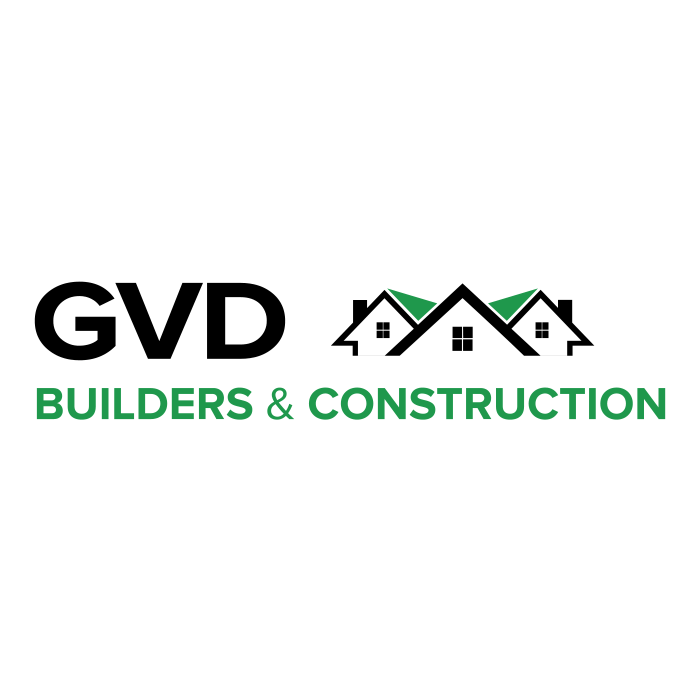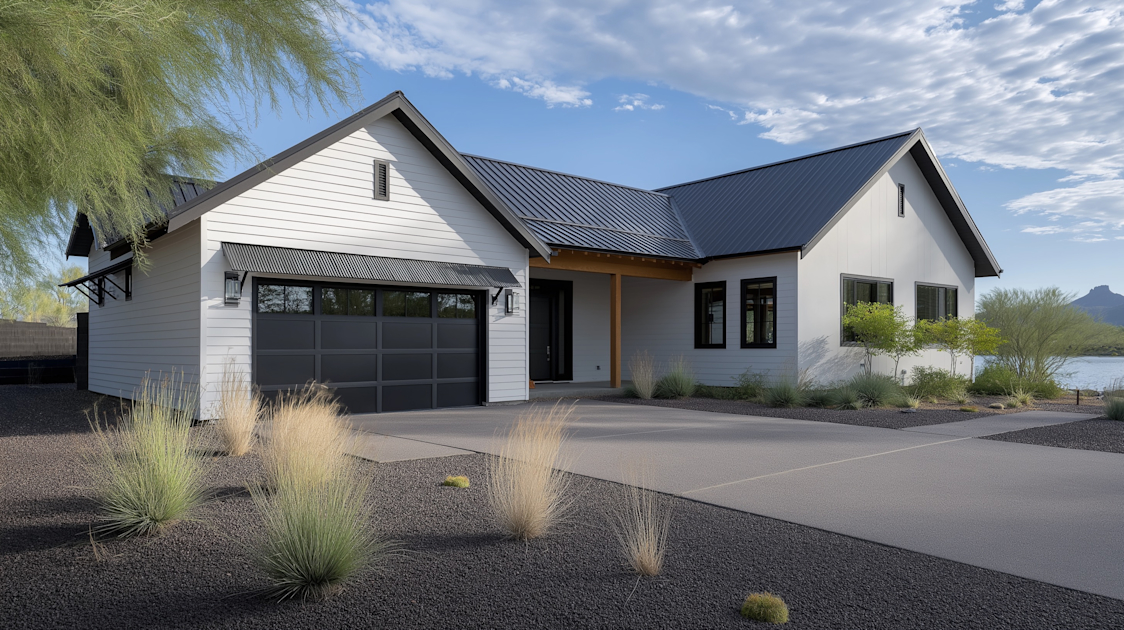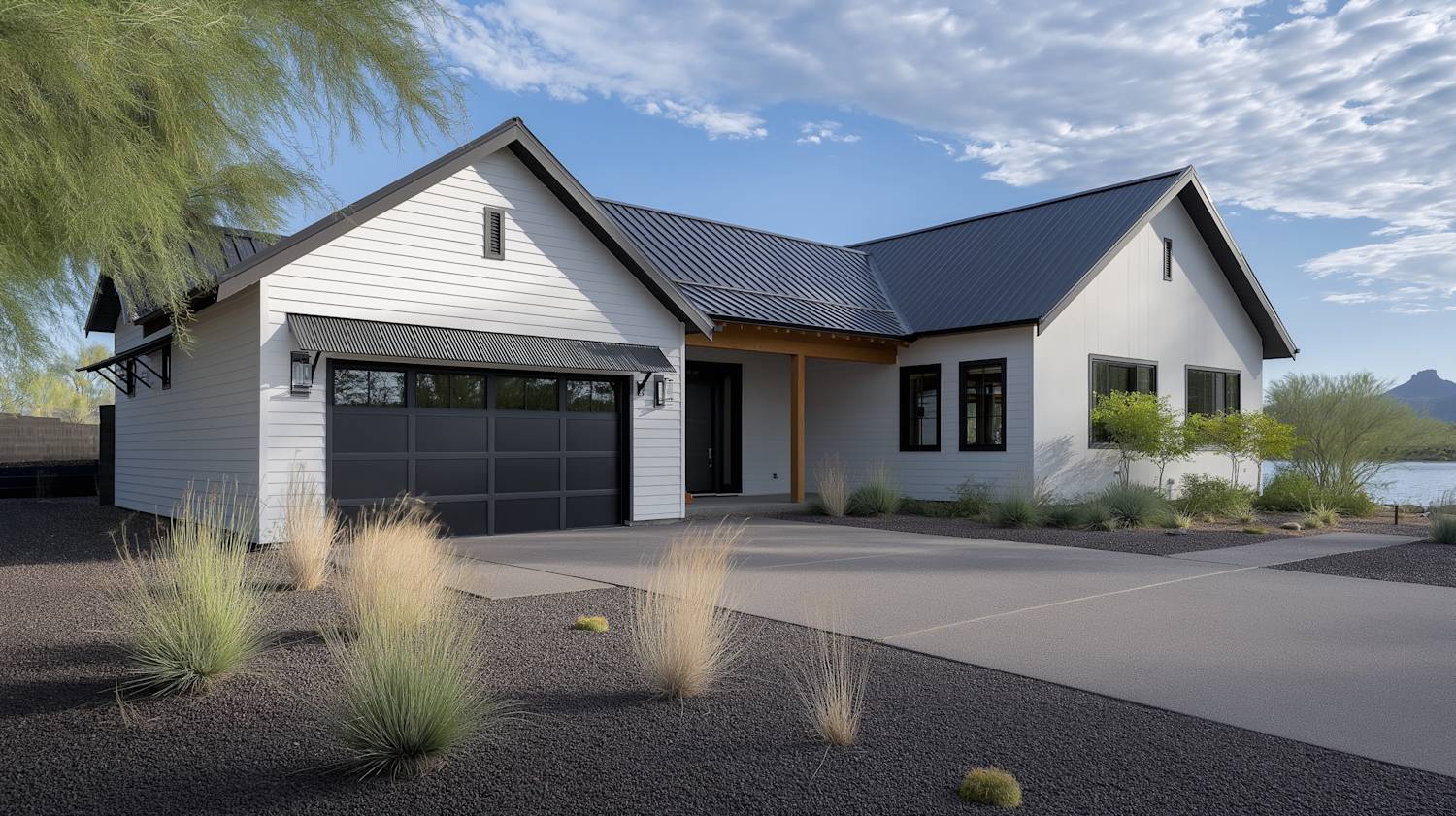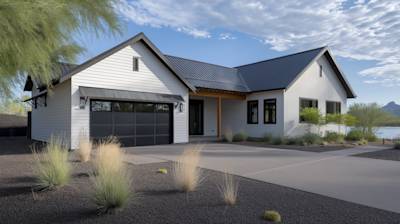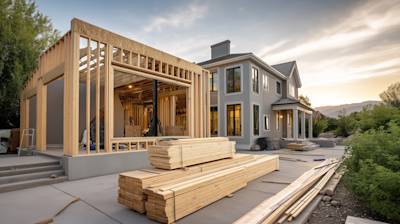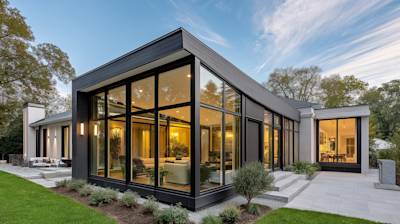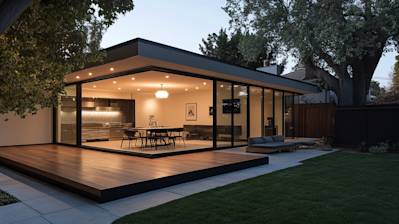Detached garages are standalone structures separate from the primary house. The appeal of this garage type is increasing significantly amongst homeowners due to their functional diversification and property value enhancement. This guide aims to provide comprehensive details about detached garages, their benefits, various types, and ways to equip them with a living space above.
Understanding Detached Garages
A detached garage offers more than just a space to safeguard your vehicle. It also provides room for storage, workshops, or even transformed into additional living space. Below are the primary features that define a detached garage:
- Complete Separation: A detached garage, as the name suggests, is a standalone structure not attached to any part of your house.
- Variable Distance: The distance between your house and the detached garage will depend on the size of your property and your personal preferences.
- Unique Design: Since detached garages are separate spaces, they can have their own unique design that may or may not mirror the architecture style of your primary home.
Benefits of Detached Garages
The decision to build a detached garage generally stems from the variety of benefits it offers. Here are several benefits commonplace with owning a detached garage:
- Design Independence: As detached garages are independent structures, they can be designed as per your preference, independent of your house's design.
- Enhanced Privacy: A detached garage can offer an increased level of privacy, especially when fitted with a living space above.
- Versatile Usage: This garage type paves the way for usage far beyond vehicle storage, including workshops, art studios, gyms, and additional living spaces.
- Increased Property Value: A well-designed and functional detached garage could enhance your property's market value dramatically.
Diverse Types of Detached Garages
Detached garages come in various types, mainly differentiated by their size and design:
- Single Bay Detached Garage: These are ideal for properties with limited space and can cater to storage needs for one vehicle with some additional storage for tools or equipment.
- Double Bay Detached Garage: These garages provide a storage solution for two vehicles and offer extra space for shelving, workspaces, or recreational use.
- Customized Detached Garage: These garages are made to suit homeowners' specific needs and allow room for creativity and personal aesthetic choices.

Frequently Asked Questions about Detached Garage
Where should a detached garage be constructed on my property?
This depends greatly on the existing layout and available space on your property. Detached garages are generally recommended to be built on level ground, and for ease of access, near a driveway or road. However, be aware of local zoning rules or homeowner association restrictions regarding the location and size of detached garages.
Can a detached garage be connected to my house with a breezeway?
Yes, you can connect your detached garage to the home with a breezeway or covered walkway. This can provide a middle ground between attached and detached garages, ensuring shelter from the elements without needing to directly attach the garage to your house.
Can I add living space above a detached garage?
The answer is generally yes, but will depend on a number of factors, such as local building codes and the garage's structural integrity. Adding a loft or an apartment above a detached garage can be an excellent way to earn extra rental income or add an office, studio, or guest room to your property.
How much does it cost to build a detached garage?
The cost can vary greatly depending on the size, materials used, whether you want an electricity supply, and local labor rates. On average, the cost to build a basic detached garage can range from $20,000 to $50,000. However, more luxury garages or those with additional features like heating and cooling systems or an upstairs living space will cost significantly more.
What types of vehicles can fit into a detached garage?
The size and design of your detached garage will dictate the type and number of vehicles that can fit. Most detached garages are designed to fit the typical personal car or SUV, but larger ones can accommodate trailers, RVs, and boats. Additionally, detached garages often include extra space for storage, workspace, or tools.
What's involved in the maintenance of a detached garage?
Maintenance will depend on the type of materials used to build your detached garage. In most cases, regular checks for any signs of wear and tear, water damage, or pest infestation are recommended. Maintenance can be as simple as sweeping and cleaning, repainting periodically, or can involve more complex tasks like roof repairs.
Can a detached garage increase the value of my home?
Yes, having a detached garage can absolutely increase the value of your property. It provides a secure place for vehicles and additional storage or living space. This is especially true if the detached garage has been well-maintained and is a visually pleasing element of the property.
What type of doors are best for detached garages?
The best garage doors depend on the size of the garage, the type of vehicles being stored, and personal preference. Popular choices include roll-up doors, retractable doors, and tilt-up canopy doors. Some homeowners might prefer a pedestrian door for ease of access when not using a vehicle.

Pros of Detached Garage
Flexibility in Design
Aesthetics
Detached garages offer greater flexibility in design. Homeowners can customise the style, size, and shape of these garages to match their home's aesthetics or to stand out as a unique architectural feature. For example, you can choose the specific materials for both the exterior and interior, select the roofing style, and even add some architectural details, such as arched doors or decorative windows, to make it more appealing.
Size and Layout
The freedom in design also applies to the size and layout, which can be beneficial if you need extra space to store large items, such as boats or RVs. You can plan the interior to incorporate tool sheds, a workspace, or even a second-story loft for additional storage or living space.
Privacy and Noise Reduction
Privacy
Since a detached garage doesn't share walls with the main house, it offers a higher level of privacy. This is especially beneficial if you plan to use your garage as a workshop or a home office. It can also be advantageous if you want to use the space as a guest suite, as this allows visitors to come and go without disturbing the main household.
Noise Reduction
Similarly, a detached garage can help reduce noise pollution. Activities like woodworking, band practice, or loud music will be less likely to disturb other family members when they're happening in a detached garage.
Safety
Fire Safety
One significant advantage of detached garages is improved fire safety. If a fire starts in the garage due to flare-ups from stored fuels or oils or an electrical fault, having the structure detached can prevent the spread of fire to the main house. This separation can potentially save your house from significant damage and keep your family safe.
Hazardous Material Storage
Similarly, detached garages provide a safer space to store potentially hazardous materials or tools. Should any leak or spill occur, it is easier to contain and won't affect your living space.
Cons of Detached Garage
Cost and Construction Time
Higher Costs
Generally, detached garages are more expensive to build than attached ones. This is because they require their own foundation and complete four-wall construction, which adds to the overall cost. Additional features, such as plumbing, electricity, and insulation, if required, will also add to the costs.
Extended Construction Time
As detached garages are entirely independent structures, they are likely to take longer to construct. Weather delays, additional inspections, and longer build times can significantly extend the construction period, which might be inconvenient for some homeowners.
Accessibility and Convenience
Reduced Accessibility
One of the main disadvantages of detached garages is that they may not be as easily accessible as attached garages. During inclement weather, walking from the garage to the house might be less than ideal, especially if you have groceries or other items to carry.
Convenience Factor
Also, the convenience factor associated with directly entering your house from an attached garage after a long day or when carrying heavy items is a luxury that detached garage owners will not enjoy. This is important to consider, especially for family members with mobility issues.
Usage of Space
Larger Footprint
Detached garages tend to use more space within a property than attached ones because they are separate structures. This could result in a smaller yard or less outdoor space, which might be a downside if you have children who need play space, enjoy gardening, or if you’re planning on adding a pool or other outdoor structures in the future.
Zoning Restrictions
Some local zoning codes and homeowners association rules limit the number and size of structures on a property. These potential restrictions could limit your ability to add a detached garage, especially on smaller lots.

Myths / Misconceptions About Detached Garages
Detached garages are often shrouded in myths and misconceptions. These misunderstandings, which can sometimes appear to give persuasive arguments, may lead people to make less-informed decisions. Many of these myths are without basis, while others can easily be clarified with some proper information. So let's debunk some of these commonly held misconceptions about detached garages.
Myth 1: Detached Garages Are More Expensive to Build
One of the biggest misconceptions about detached garages is that they are significantly more expensive to build than attached garages. However, this is not necessarily always true.
Cost Factors
The cost of building a garage, whether attached or detached, depends on numerous factors such as size, material choice, location, and design features. For instance, a small simple detached garage could end up being cheaper than a large, bespoke attached one.
Myth 2: Detached Garages Are Not Safe
There's a common belief that detached garages are unprotected and thus more susceptible to break-ins and burglaries compared to attached garages.
Safety Considerations
However, the security of any out-building primarily depends on the security measures implemented rather than its physical connection to the main house. Good lighting, solid construction, security cameras, and alarm systems can help make detached garages as safe as their attached counterparts.
Myth 3: Detached Garages Are Less Convenient
Many people think that detached garages are less convenient because they require one to brave the elements when moving between the garage and the main house.
Assessing Convenience
While it is true that an attached garage allows for an easy transition from car to house, the supposed inconvenience of detached garages can be mitigated through careful planning. For example, a well-placed walkway, covered path, or even awnings can offer protection against weather conditions.
Myth 4: Detached Garages Lower Property Values
The idea that detached garages decrease property value is a common misconception.
Property Value Influence
In reality, both attached and detached garages can add value to a property. The influence on property value depends more on the garage’s condition, size, and functionality rather than its location. In some cases, a well-designed detached garage can even increase property value due to providing added privacy and versatility.
Myth 5: Detached Garages Are Only for Storage
There's a widespread belief that detached garages are solely for storing cars and miscellaneous home items.
Versatile Uses
Contrary to this belief, detached garages can serve numerous purposes. They can be personalized and converted into home offices, guest houses, art studios, home gyms, workshops, or entertainment areas. With proper insulation and heating, they can be used year-round for numerous activities.
Myth 6: Detached Garages Mean More Maintenance
Some people believe that detached garages require more maintenance than attached ones.
Maintenance Factors
It's important to remember that maintenance requirements depend more on the materials and construction quality of the garage, rather than its physical location. If built with durable materials and kept in good shape, a detached garage would not necessarily require more upkeep.
The bottom line is that many of the misconceptions about detached garages have been debunked. These standalone structures often offer greater flexibility and can be just as cost effective, safe, and convenient as attached garages. Despite the myths, the decision between an attached or detached garage should come down to personal preference, needs, and property layout.
Summary
If you're looking for a flexible, functional space for your vehicles, hobbies, or storage needs, a detached garage might be just the ticket for your property. Remember a detached garage offers optimal design versatility, allowing homeowners to tailor it according to their needs and preferences. Plus, the potential for added privacy and noise reduction between your house and the garage is hard to ignore.
As you deliberate the pros and cons of adding a detached garage to your property, remember its significant potential for increasing property value. A well-designed and thoughtfully placed detached garage can significantly enhance the overall appeal of your property. Plus, if you ever decide to sell, you'll be offering potential buyers not just a home, but a lifestyle convenience as well.
Finally, let's not forget the creative usage possibilities that a detached garage brings. Whether you need a private home office, a workout studio, or a guest house, this structure can be much more than a mere car park. It's an opportunity to create a space that evolves with your lifestyle needs. Remember, your detached garage can be whatever you need it to be.
About GVD Builders
GVD Builders is a top-notch Sacramento, CA-based company specializing in building and renovating beautiful homes. With many years of experience in the field, our team of experts is passionate about delivering top-quality workmanship and unparalleled customer service. We are dedicated to transforming unique design dreams into reality, always keeping your specs, timeline, and budget in mind. Whether it's a full-scale remodel or a smaller update project, GVD Builders ensures smooth execution and eye-catching results. Trust us with your building project, and you'll join the ranks of satisfied clients who've benefitted from our commitment to excellence.
